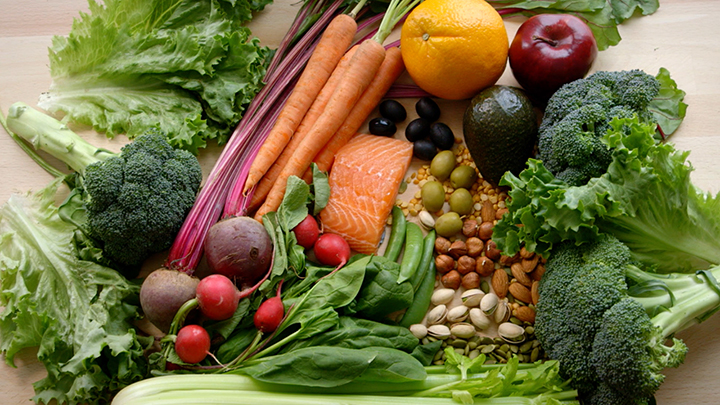TORONTO – One in six Canadians over the age of 15 report suffering from arthritis. And the inflammation that causes their joint pain can often be exacerbated with certain foods.

The ones to avoid, according to dietitian, author and public speaker Kim Arrey, are foods with a lot of saturated fat (found in red meat, cheese and butter), and with a high glycemic index. The latter will raise your blood sugar quickly and can lead to high levels of inflammation. Arrey cited white bread, potatoes and the sweet stuff – including cereals and instant oatmeal – as top culprits.
She and The Arthritis Society believe following the Mediterranean diet can help.
“By far the biggest impact of the Mediterranean diet is that it includes a healthy mix of foods at lower fat and calories than the typical North American diet, which can help people manage their weight,” explained Douglas Emerson of The Arthritis Society.
“Carrying excess body weight is damaging to your joints, and can contribute significantly to the pain experienced by a person living with arthritis.”

Get weekly health news
He added that many components of the diet are also believed to help fight inflammation, and in some cases even reduce pain.
Emerson highlighted the following parts of the diet that can benefit someone with arthritis:
- Fish: cold-water fish like salmon and trout contain high levels of inflammation-fighting omega-3 fatty acids (shown to reduce levels of inflammatory proteins CRP and interleukin-6). Two or more servings per week is recommended. Fish oil supplements may present an alternative, but you should speak to your doctor first.
- Fruits and vegetables: full of antioxidants, anthocyanins and vitamins that can all help maintain healthy joints and combat inflammation. Load up on colourful fruits and vegetables –darker or more intense color = more antioxidants. Think blueberries, cherries, spinach, kale and broccoli.
- Beans: beans are full of phytonutrients that can help lower CRP, along with being a healthy source of fibre and protein. Red beans, kidney beans, pinto beans and other legumes are all great choices.
- Nuts and seeds: while relatively high in fat and calories, nuts and seeds are good sources of protein, fibre and monounsaturated fats, as well as vitamin B6, which is thought to reduce inflammatory markers. Eat lean nuts (walnuts, pine nuts, almonds) in moderation – one or two handfuls a day, in place of a different protein serving.
- Olive Oil: heart-healthy fats and a compound called oleocanthal that reduces pain sensitivity make extra-virgin olive oil a terrific substitute for animal-based fats. Other plant-based oils such as safflower oil and walnut oil can be good substitutes as well. Two to three tablespoons daily is recommended.
But there is one component of the Mediterranean diet arthritis sufferers should be cautious about: “nightshade vegetables.” Those include eggplant, tomatoes, bell peppers and potatoes.
“These foods pack a lot of nutritional punch with few calories, but also contain a chemical called solanine that may play a role in arthritis pain for some people.
Both he and Arrey point out that there are over 100 different types of arthritis, so how one person’s arthritis reacts to certain foods can be different than another’s reaction.
“The bottom line,” Emerson said, “is make healthy food choices, eat in moderation, and discuss any health, diet or medication changes with your physician.”



Comments
Want to discuss? Please read our Commenting Policy first.